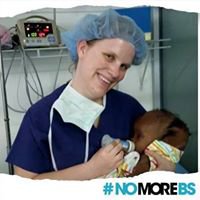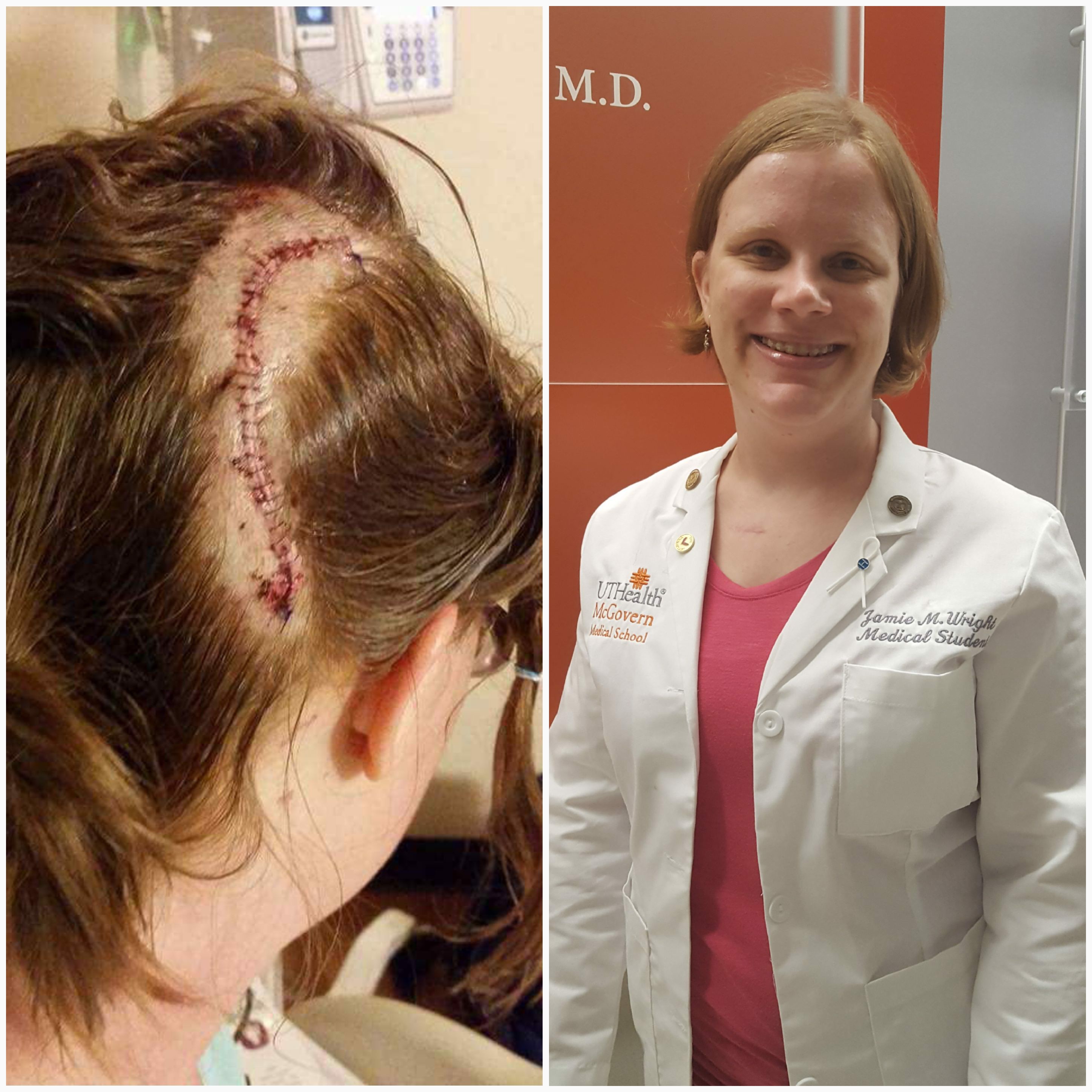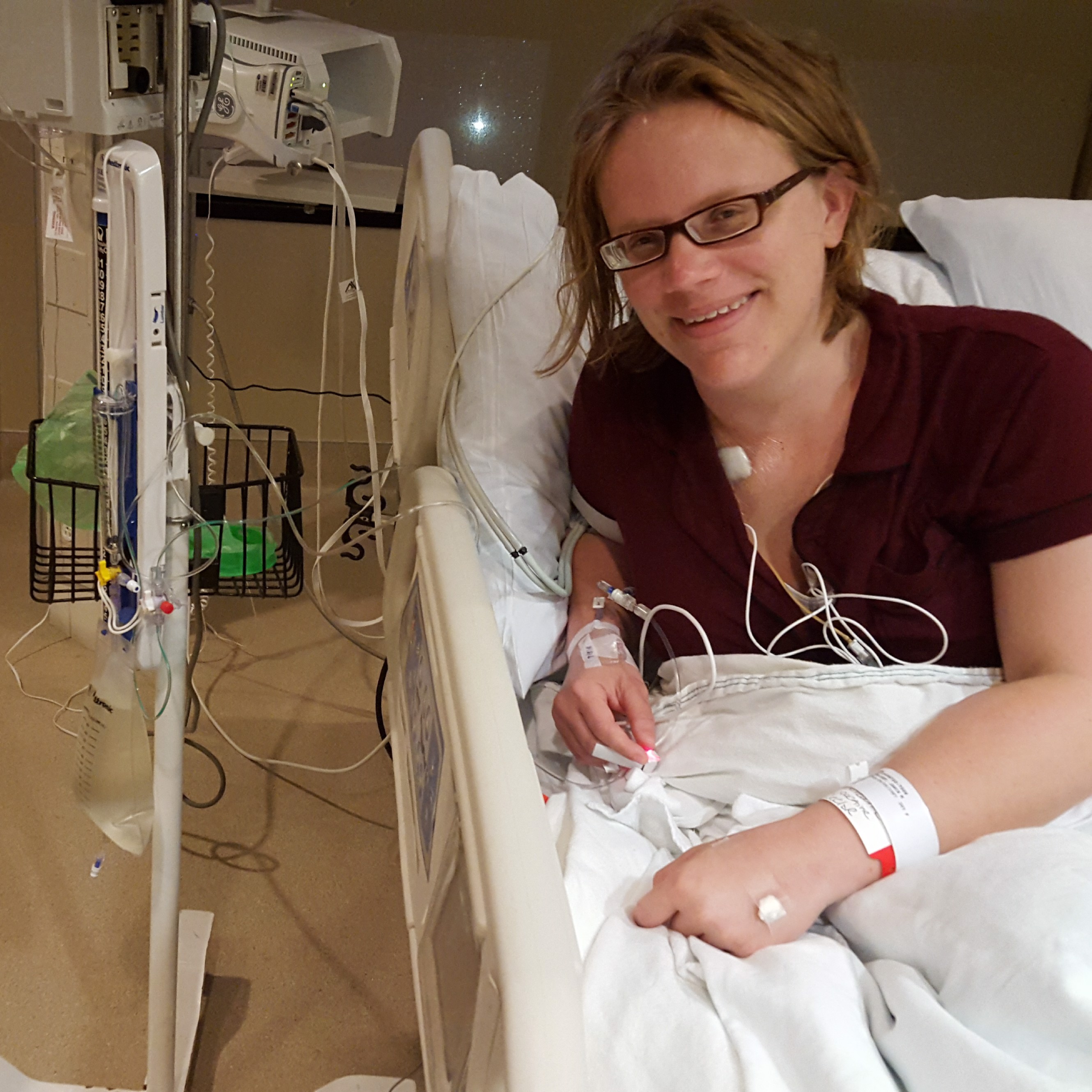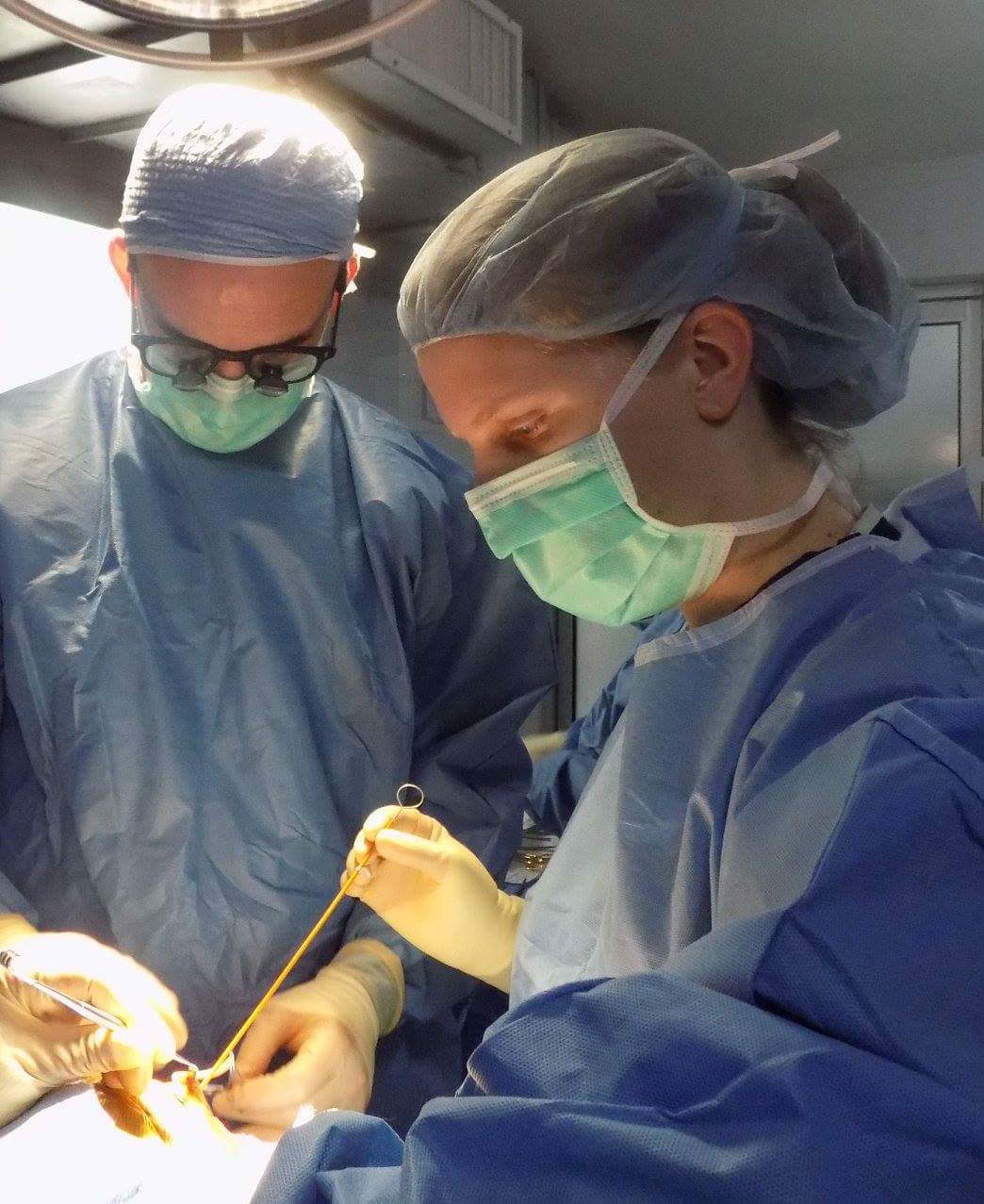Patient. Scientist. Future Doctor.
- Jamie Wright

- Jan 7, 2019
- 2 min read
The Unknown of Hydrocephalus
When I was diagnosed with hydrocephalus at four months old no one knew what to expect. Many with the condition are not able to live independently. Even more, have severe learning disabilities. And the only treatment option for hydrocephalus is brain surgery. Some feared I would not be able to keep up with my peers, let alone excel. Some have pre-judged my abilities because of my diagnosis, but here I am. I was valedictorian of my high school class, graduated summa cum laude with a bachelor’s degree in Molecular Biology, and am currently in a Medical Scientist Training Program working on both an MD and PhD.
Brain Surgeries and Dreams
A lot went into my decision to become a doctor and do research, but it really came down to one fact my neurosurgeon told me my junior year of high school, “50% of shunts fail within two years”. I had just found out I needed another brain surgery, my seventh surgery, fourth neurosurgery, at that point. Doctors, CT scans and surgeries had always been a part of my life, but it was not until that moment that I realized how truly lucky I had been on my hydrocephalus journey and how unreliable the current treatments for hydrocephalus are.
In the last three years, while in graduate school, I've undergone 10 more hydrocephalus-related neurosurgeries, including VP shunt revisions, intracranial pressure monitoring and an endoscopic third ventriculostomy (ETV). My once frequent migraines are now daily, but I am learning a new normal, managing and working through the pain. I know I will need more brain surgeries and will probably never be headache-free, but I am determined not to let it keep me from my dreams. I love getting to help others facing health challenges, through biomedical research, as a doctor in training and by providing support to others in the hydrocephalus community through my volunteer work with the Hydrocephalus Association. Living with hydrocephalus has not been easy, but through it all I have gained invaluable experiences that have helped me realize my dreams and that will help me to be a better doctor and scientist. I truly believe that there is a purpose behind all the pain. I can see how my struggles and seeming disabilities helped me get to where I am today. They enabled me to hone my problem-solving skills, taught me to ask for what I need, and inspired me to use my talents to help others facing health challenges.
Be Your Own Mapmaker
We never know what the future holds. Everyone's journey is different. But it is important to remember that we are our own mapmaker on this journey of a lifetime. While illness may put difficult terrain and detours in our path, sometimes those are the very things that guide us to the most amazing destinations.





































Comments